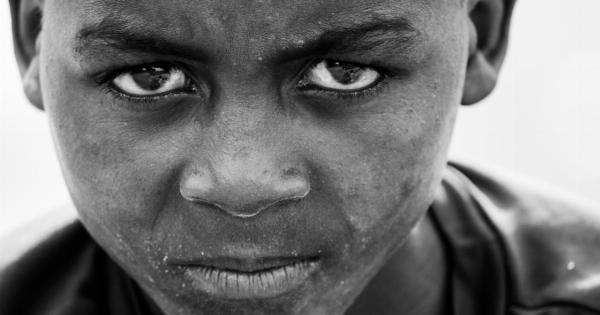When a child falls ill, it can be a challenging and worrying time for parents. The thought of their little one in pain or discomfort is enough to bring any parent to their knees. However, even in the darkest of times, there is always a glimmer of hope.
Medical advancements, expert care, and the strength of a child’s spirit can help overcome the most formidable of health challenges. This article aims to discuss the various aspects of children’s illnesses and shed light on the potential for recovery and better health.
The Importance of Early Detection and Diagnosis
Early detection and diagnosis play a crucial role in treating children’s illnesses. Regular check-ups and close monitoring of a child’s health are essential in identifying warning signs and symptoms.
Pediatricians and healthcare professionals use a combination of medical history, physical examinations, and diagnostic tests to assess a child’s condition accurately. The sooner an illness or underlying condition is identified, the better the chances for successful treatment and management.
Medical Advancements in Treating Childhood Illnesses
The field of medicine has made tremendous progress in recent years, especially when it comes to treating childhood illnesses.
Researchers and healthcare professionals are continuously working towards developing new treatments, medications, and therapies specifically tailored for children. These advancements have significantly improved the overall outcomes and quality of life for many young patients.
One of the most notable breakthroughs has been in the area of childhood cancer. Decades ago, a cancer diagnosis in a child often meant a grim prognosis.
However, with the development of targeted therapies and personalized medicine, many childhood cancers are now treatable, and survival rates have significantly increased. Innovation in surgical techniques, chemotherapy protocols, and radiation therapies have also contributed to the improved prognosis for children with cancer.
Additionally, chronic conditions such as asthma, diabetes, and cystic fibrosis are now more manageable than ever before.
With advancements in medication, inhalation devices, blood glucose monitoring systems, and genetic research, children can lead relatively normal lives despite their conditions. This progress provides hope to parents facing the challenges of managing chronic illnesses in their children.
The Role of Expert Pediatric Care
One of the critical elements in the recovery and well-being of an unwell child is expert pediatric care. Children require specialized medical attention, as their bodies and health conditions differ significantly from adults.
Pediatricians specialize in diagnosing and treating children, considering their unique developmental stages and challenges.
Children’s hospitals and specialized pediatric units are equipped with state-of-the-art facilities and staffed with professionals trained in pediatric medicine.
These dedicated healthcare facilities provide holistic care, taking into account the physical, emotional, and psychological needs of a sick child.
The Resilience of a Child’s Spirit
Children have an incredible capacity for resilience and often display remarkable strength in the face of adversity. Their boundless energy and optimism can be a source of inspiration for adults and serve as a guiding light during challenging times.
This resilience often aids in their recovery, as their determination and fighting spirit fuel them in their journey towards better health.
It is essential for parents, medical professionals, and society as a whole to provide a supportive environment for a sick child.
Encouragement, emotional support, and access to appropriate resources can contribute significantly to the child’s overall well-being and chances of recovery.
Supporting Families and Caregivers
Recognizing that a child’s illness affects not only the child but the entire family is crucial. Parents and caregivers of unwell children often face significant emotional, financial, and practical challenges.
Support systems, such as counseling services, support groups, and financial assistance programs, can help alleviate some of the burdens faced by these families.
Furthermore, community involvement and awareness play a vital role in creating inclusive environments for these families.
By promoting understanding and empathy, society can help ease the isolation and stigma that may be experienced by families caring for unwell children.
Celebrating Each Milestone
Throughout a child’s journey towards recovery, whether it be short-term or long-term, it is crucial to celebrate each milestone achieved. Every step forward, no matter how small, is a victory and represents progress.
Recognizing and rejoicing in these milestones helps boost a child’s morale, provides motivation, and instills hope for a brighter future.
Providing a Sense of Normalcy
When a child is unwell, their world revolves around hospitals, treatments, and medical appointments. Amidst this, it is important to provide a sense of normalcy whenever possible.
Allowing the child to engage in age-appropriate activities, school, playtime, and socializing can help preserve their childhood and promote a positive mindset.
In some cases, technology and virtual experiences can bridge the gap by bringing school, friends, and activities directly to the child’s bedside or home.
These initiatives help maintain a semblance of routine and joy, even in challenging circumstances.
The Power of Hope
Hope is a powerful force that can make a significant difference in a child’s journey towards recovery. It is a beacon of light shining through the darkest days, providing strength, courage, and determination.
Parents, healthcare providers, and society must cultivate hope in the hearts of unwell children and their families.
By staying informed about the latest advancements, offering support, and maintaining unwavering belief in a child’s ability to heal, we can collectively contribute to their better health.
When children are unwell, hope should be nurtured, embraced, and never lost.


























